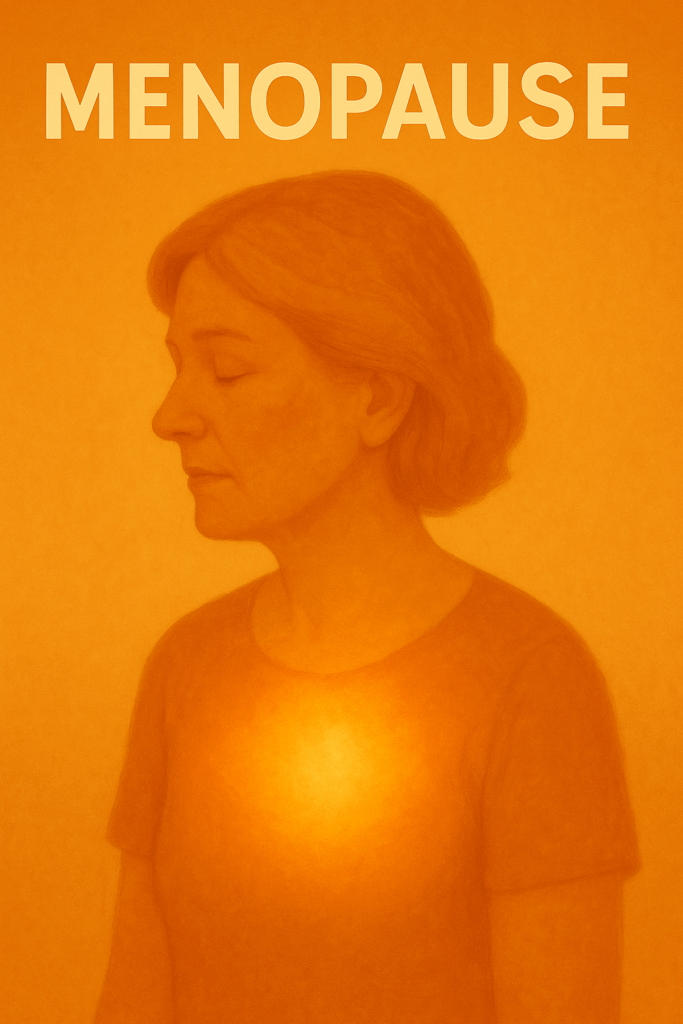Menopause Symptoms: The Body’s Call for Transition and Renewal
Menopause marks a natural stage in a woman’s life — a transition rather than a decline. From a Natural Hygiene perspective, it is not a disease or deficiency, but a biological adjustment in which the body rebalances its energy after the reproductive years. The symptoms commonly associated with menopause — such as hot flushes, mood changes, fatigue, or irregular cycles — arise not from malfunction, but from the body’s efforts to cleanse, stabilise, and redirect its energies inward.
For decades, the body has cycled through monthly eliminations, using menstruation as a secondary means of releasing waste. When menstruation ceases, the body must find new pathways for elimination through the skin, kidneys, and lungs. This can temporarily create sensations such as heat or flushing as the body increases circulation to assist detoxification. Rather than suppressing these symptoms, Natural Hygiene encourages allowing the process to unfold while supporting the body through rest, hydration, and pure nourishment.
The endocrine system — particularly the adrenal and pituitary glands — plays a major role in this transition. When the ovaries reduce their activity, these glands take over certain hormone-regulating functions. If they are already fatigued from years of stress, stimulants, or poor sleep, the adjustment can feel more turbulent. Rest and relaxation become essential, allowing the endocrine system to regain equilibrium. When energy is conserved rather than wasted, hormonal balance re-establishes naturally.
Dietary influences strongly affect menopausal experience. A diet high in animal products, refined carbohydrates, caffeine, and alcohol acidifies the blood and burdens the liver, increasing internal heat and irritability. By contrast, fresh fruits, vegetables, and simple plant-based meals alkalise and cool the system. Water-rich foods such as melons, cucumbers, and leafy greens help regulate temperature and promote calm. Regular hydration assists the kidneys in carrying away waste, lightening the load on other organs.
Emotional balance is equally vital. The end of the reproductive cycle can bring reflection on purpose, identity, and time. Unresolved emotions may surface, and the body uses this opportunity for emotional cleansing as much as physical. By allowing rather than resisting these feelings, women can transform this stage into one of profound inner renewal. Practices such as meditation, deep breathing, and time in nature restore perspective and peace.
Exercise remains a cornerstone of health at this time. Gentle movement such as walking, yoga, or swimming enhances circulation, supports lymph flow, and lifts mood. Weight-bearing activities strengthen bones, helping prevent the mineral loss that can follow years of acid-forming diets. Sunlight exposure also supports calcium balance and vitality.
The body’s intelligence does not diminish after menopause — it shifts focus from reproduction to regeneration. This is a time when creativity, wisdom, and inner strength flourish. By living in harmony with natural laws — pure food, clean air, sunlight, rest, and emotional honesty — symptoms ease and vitality deepens.
Menopause, then, is not an ending but a cleansing passage into a more stable, reflective phase of life. When the transition is supported rather than resisted, it becomes a doorway to renewal — physically, mentally, and spiritually.
Suggested Internal Links
- The 7 Stages of Disease
- Fasting and Healing Crises
- Digestive Health and Food Combining
- Lymphatic System and Detoxification
- Natural Hygiene Coaching

